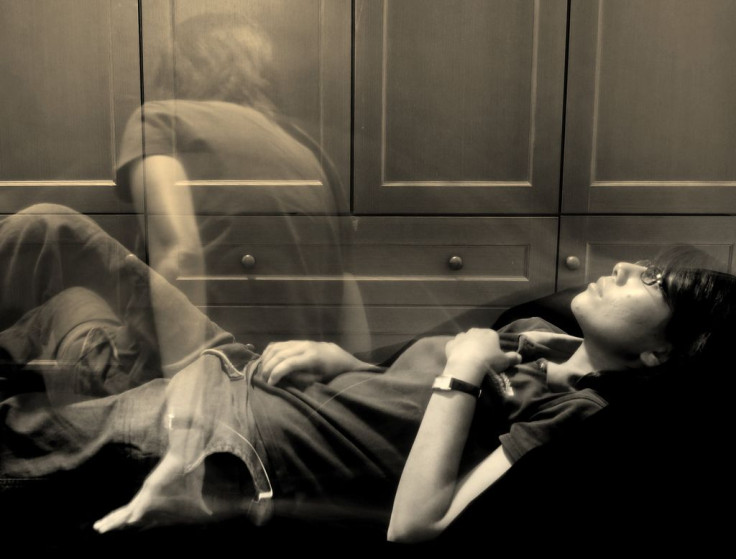Sleepwalkers' Inability To Feel Pain May Be Due To 'Dissociated Brain Activity'

Sleepwalking is a bit of an enigma, according to a new study published in the journal Sleep. While many sleepwalkers report chronic headache and migraine during their wake cycle, they don’t seem to feel any pain when they’re asleep.
"Disturbed sleep is a major complaint of subjects suffering from chronic pain," researchers wrote. "Pain during sleep increases arousal frequency, thereby disrupting sleep. However, experimental studies also suggest another causal dynamic between [pains] and sleep disturbances. Partial and total sleep deprivation protocols in humans have increased hyperalgesia by decreasing pain perception thresholds."
Researchers added that slow wave sleep and REM sleep modulate a person’s pain perception, so they conducted a cross-sectional study of 100 healthy control subjects and 100 patients with a diagnosis of sleepwalking; there were 55 males and 45 females, all an average age of 30. Clinicians evaluated "daytime pain complaints," while study participants also self-reported "lifetime headache frequency and headache characteristics." They answered questions having to do with their pain intensity, pain interference, affective distress, social support, and life control.
Patients with "at least one lifetime severe injurious sleepwalking episode associated with pain" were asked addition questions, such as, "Did the pain wake you up from your injurious sleepwalking episode?" and, "Did you feel the pain only when you woke up later in the night or in the morning?" And out of the 100 sleepwalkers, 47 reported having experienced at least one injury during a sleepwalking episode compared to only 10 sleepwalkers actually waking up due to pain. The other 37 sleepwalkers perceived no pain at all, but felt pain later in the night or early the next morning.
We're talking serious injuries, too. One participant sustained severe fractures after jumping out of a third-floor window during an episode, but didn't feel any pain until waking up later in the night. These results shed some light on the mechanisms underlying episodes of sleepwalking. Researchers now hypothesize there may be a relationship between dissociated brain activity and nociceptive dysregulation — "a complex process involving connectivity between many peripheral and central nervous system structures."
In their book AsapSCIENCE: Answers to the World’s Weirdest Auestions, Most Persistent Rumors, and Unexplained Phenomena, authors Mitchell Moffitt and Gregory Brown explain that "nociceptors are a group of specialized nerve cells in the body that fire only when a certain pain threshold has been passed." Some "nociceptors respond quickly, sending signals to your spinal cord and brain, which produce sharp or sudden pain," allowing you to react in real time. Then there are nociceptors that "transmit more slowly and are responsible for prolonged dull aches." It’s also a process that is different for men and women.
"Some evidence suggests that sleepwalking is a dissociative state caused by disturbances in local sleep mechanisms due to incomplete arousal from [slow wave sleep]," researchers explained. "Accordingly, dissociated brain activity combined with the persistence of local sleep versus wake state may activate regions involved in nociception and pain perception."
Yet, despite the prevalence of sleepwalking, researchers find that "its pathophysiology remains poorly understood." What they do know is that the brain is partially awake, and that results in behavioral manifestations wherein sleepwalkers have no conscious awareness of their (sometimes injurious) actions.
"As these neuronal networks also play a role in nociceptive regulation, we hypothesize that a dissociated arousal state in these regions may modify the components of sleep-wake behavior, consciousness, and pain perception," researchers concluded. "Hence, activity inhibition mechanisms within the [brain's] thalamocortical circuits may block the transfer of sensory information to the cerebral cortex, thus inducing analgesia [the inability to feel pain]."
Source: Lopez R, Jaussent I, Dauvilliers Y. Pain in sleepwalking: a clinical enigma. SLEEP. 2015.



























